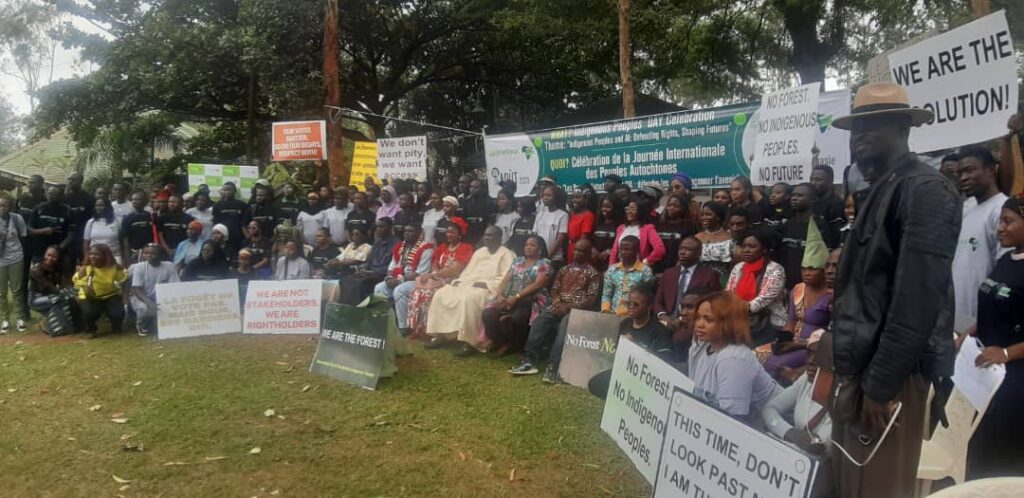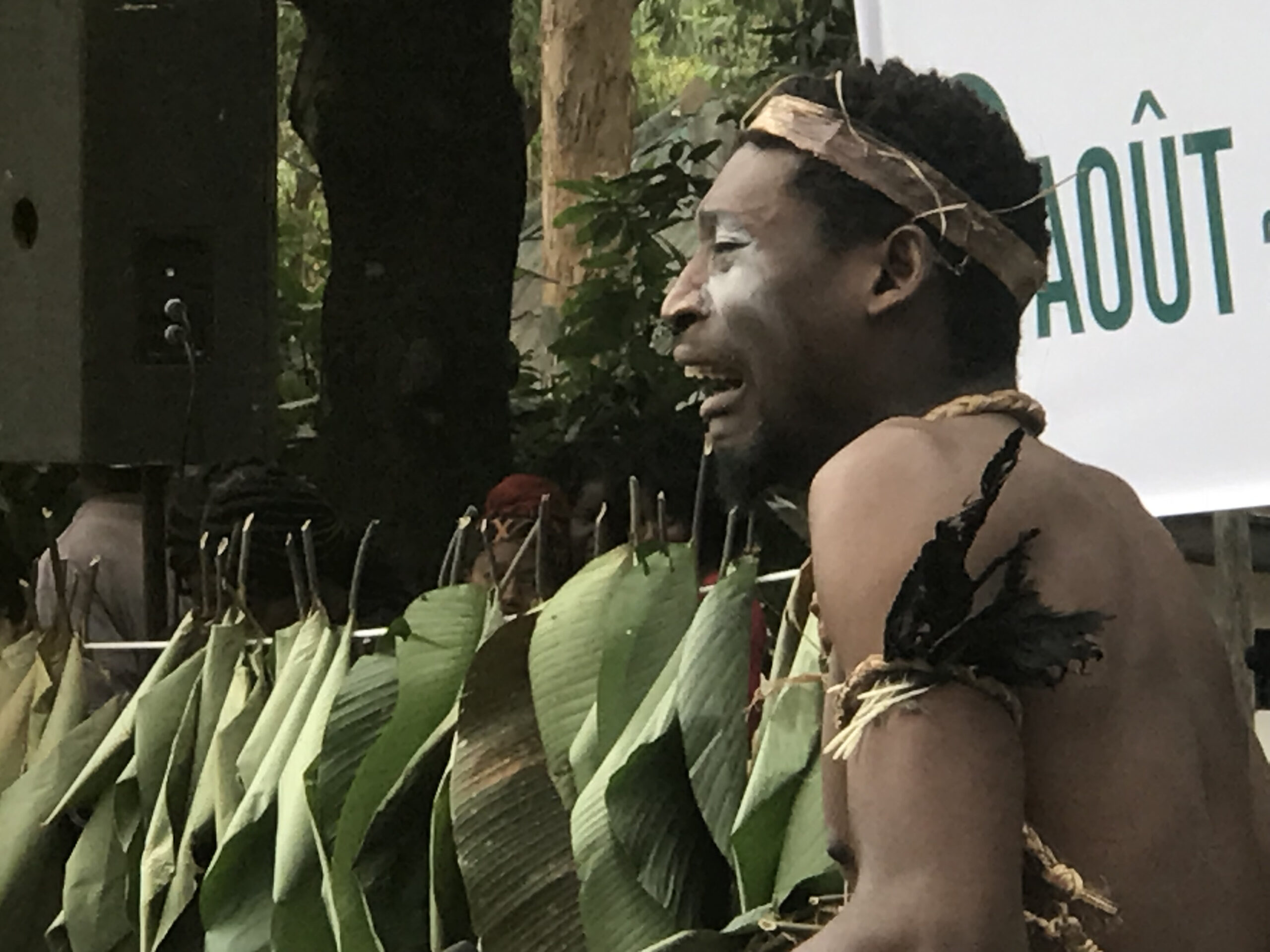Leocadia Bongben
As the world celebrates the International Day of Indigenous Peoples, Cameroon’s Baka, Bagyélé, Bakola, Bedzan, and Mbororos cry for recognition and land rights. The plea comes against the backdrop of a lack of a legal framework for the protection of indigenous peoples.
The day instituted by the UN in 1994 is celebrated on August 9, and the theme of this year, 2025, is ‘Indigenous peoples and artificial intelligence: defending rights, shaping the future.’ Ahead of the day, Greenpeace organized an information and advocacy day, which provided an opportunity for the indigenous people to raise their voices and present their problems to the government at the Bois Saint Anastasie in Yaoundé.
On the occasion, Nkolo Thade, who is from Nyabibete, a Baka hamlet in Njoum, South Cameroon, spoke tremblingly and with tears in his eyes as he recapped the struggles of the indigenous peoples. “We have a problem with land. Our neighbors often accuse us of occupying their property, and we have no one to speak up for us. Like strangers, we are. After being driven out of the forest to live beside the road, our great-grandparents lacked the skills necessary to petition the government for their land rights. There is no official recognition for our chiefs. Our store is the forest, but it is vanishing, and we might only be remembered in history books. Give us our indigenous identity; we are forest people.”
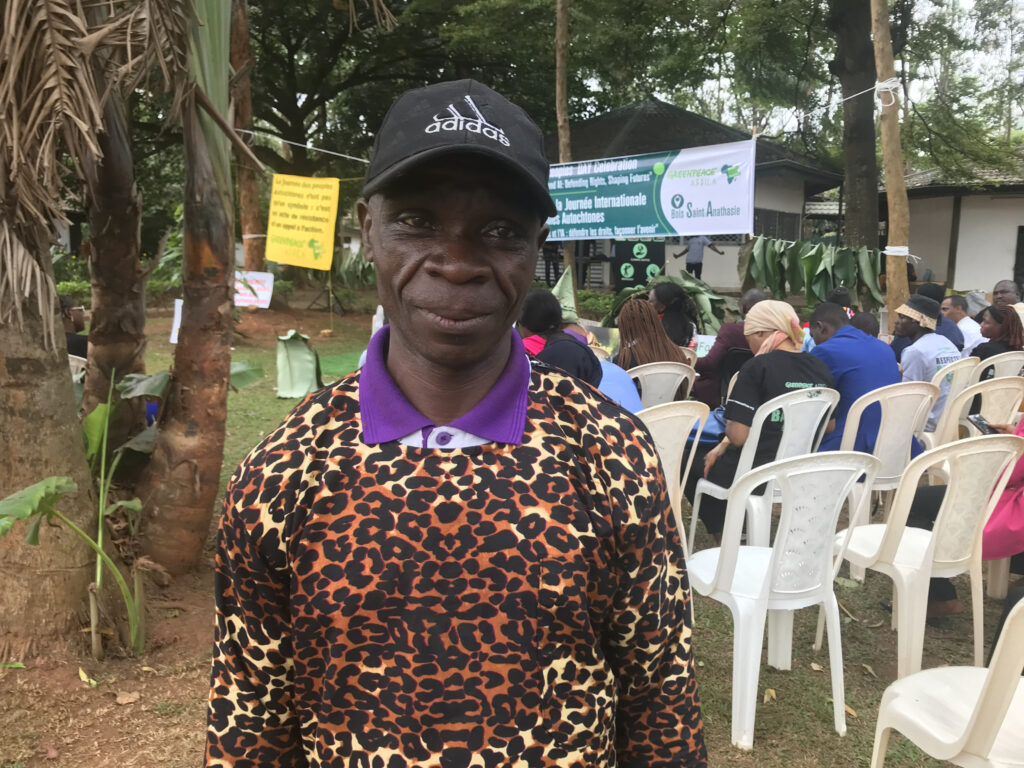
On the land rights, Jean Jacques Ebo Ebo from Meyonmessala adds, “The Bantu people threaten to seize the little space where we have constructed our huts. I have complained to the Bantu chief, and without a favorable response, I am now obliged to take the issue to the divisional officer. Help legalize chiefs of indigenous people.”
Like the Bakas, the Mbororros from the savannah, and the Banen people of Ebo, among others, they have one thing in common: limited access to ancestral land. A sketch from Mboa Hub depicted how local communities are stripped of their land for development projects, which enriches a few officials.
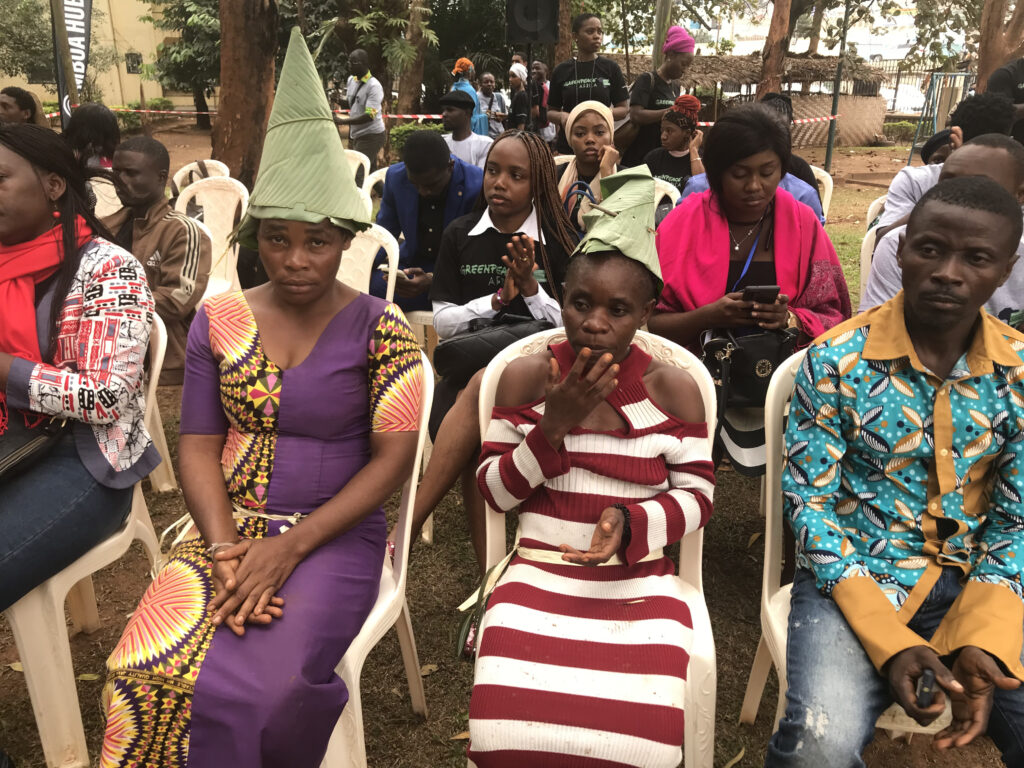
According to the representative of the Minister of Forestry and Wildlife, “It is important to reflect on the future of the Indigenous Peoples. It is appreciated that Greenpeace is taking the lead to urge the government and stakeholders to celebrate indigenous people while reflecting on their situation.”
A roundtable debate provided an opportunity for the representative of the Minister of Territorial Administration to indicate that the government recognizes traditional chiefdoms, especially since chiefs are auxiliaries of the administration; however, pending the effective demarcation of territories, indigenous peoples remain marginalized. Additionally, the Ministry of Social Affairs mentioned a study commissioned in the year 2000 to examine the absence of a legal framework for indigenous people, whose results are still pending. The representative, however, maintained that Cameroon is applying the international charters and conventions it had signed and ratified.
Greenpeace Africa forest campaigner Stella Tchoukep suggests charting dwelling areas and the activities they engage in to record their land rights using participatory mapping. Additionally, she is calling for the provision of resources to help indigenous peoples adjust to their new living conditions, which include living in homes outside of the forest that gave them unfettered access to all they needed to exist.
The theme presents a chance to chronicle indigenous resources and cultural legacy by leveraging the benefits of technology and artificial intelligence, according to the Greenpeace Cameroon country director. To defend what is most important to the Baka and Bagyueli people—their culture, land, and forest—and to assert their rights and express their opinions where they are not heard.
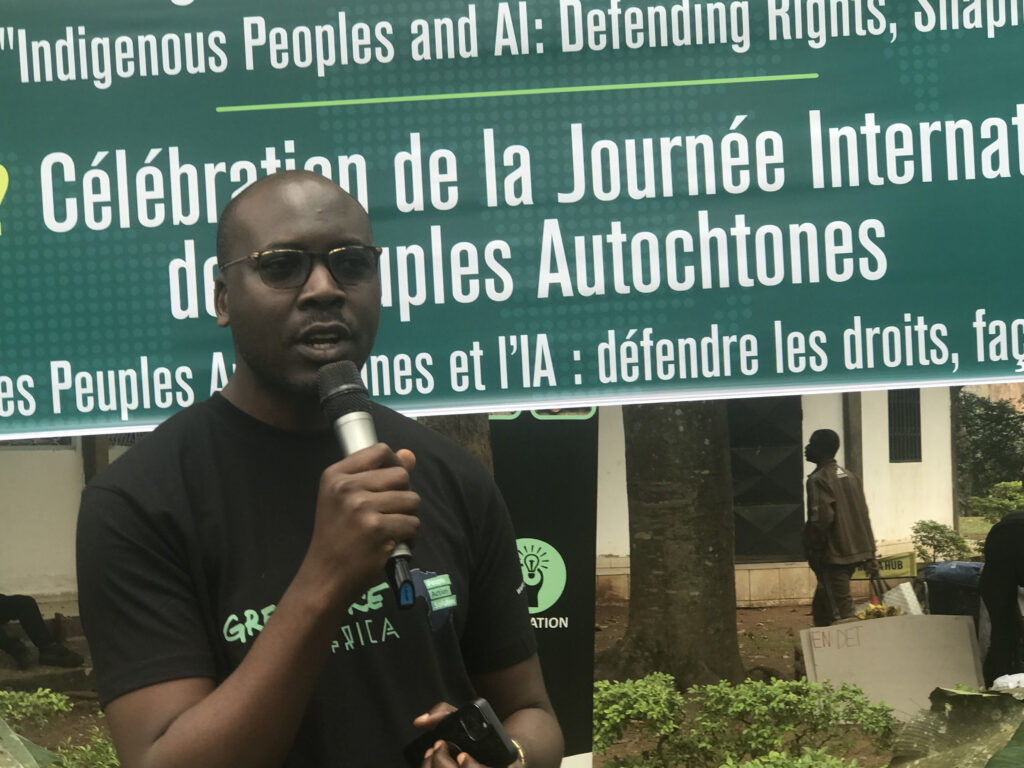
The necessity “to promote the recognition of indigenous peoples as full citizens of the countries of the Congo Basin, encourage the recognition of their land rights, and establish an International Day of the Congo Basin” is emphasized by Dr. Fabrice Lamfu Yengong, Forest Campaign Manager of Greenpeace. In light of this, he called on governments and interested parties to intensify efforts to recognize indigenous peoples’ rights so that these developments might be honored during the day’s subsequent observance in 2026.
